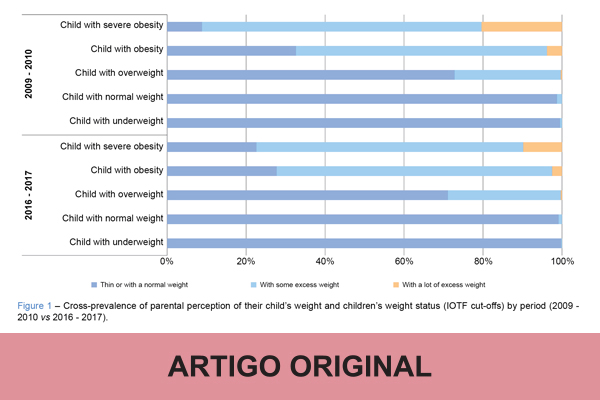SOCIAL MEDIA
Portuguese Medical Association's Scientific Journal

Introduction: Parental perceptions of a child’s weight status may influence family readiness to foster healthy behaviors. Our aim was to observe parental perceptions of their child’s weight status in two time periods and in multiple population subgroups.
Methods: Data were collected in two national projects, 2009 - 2010 (n = 6577) and 2016 - 2017 (n = 7594), in public and private kindergartens and primary schools in Portugal (children aged three to 10 years old). Parents filled out a questionnaire regarding their perception of their child’s weight status, namely: 1) too thin, 2) thin, 3) normal weight, 4) with some excess weight, or 5) with a lot of excess weight. Children’s height and weight were objectively collected, and the International Obesity Task Force cut-offs were used to classify overweight and obesity. Accurate and misclassification levels were calculated for children according to their sex, age, as well as child and parental weight status, while considering differences within and between the two time periods.
Results: Overall, accuracy in parental perception of their child’s weight was higher in 2016 - 2017 than in 2009 - 2010, regardless of children’s sex, age, parental weight status, and education (65.7% and 60.5%, respectively). However, the ability of parents to detect obesity was ~ 50% lower in 2016 - 2017 compared with 2009 - 2010.
Conclusion: Even though parental perception of their child’s weight was better in 2016 - 2017 than in 2009 - 2010 , the inverse result was found among children with obesity. Strategies are needed to encourage parents to improve their perception of the appropriate weight for their child.